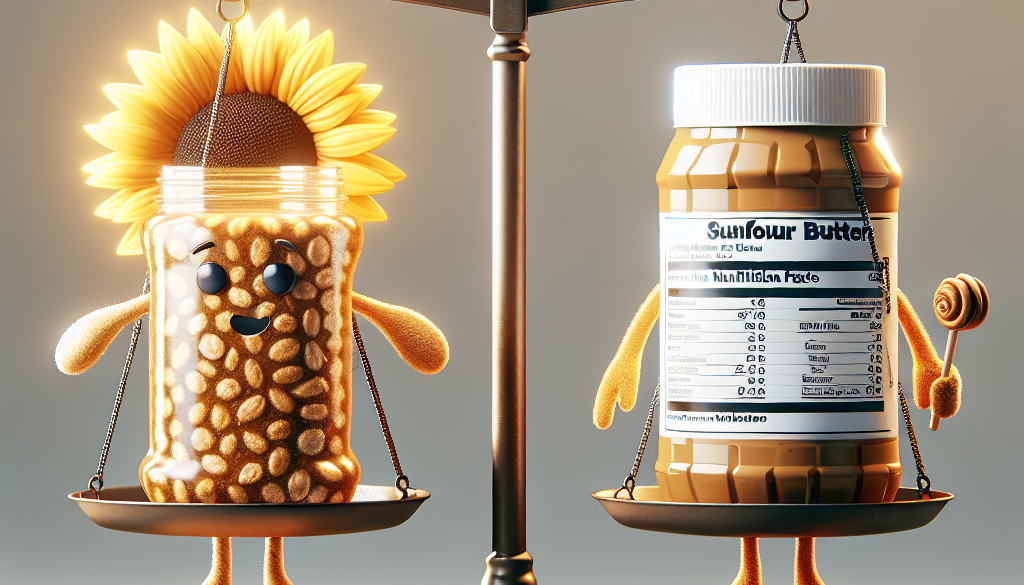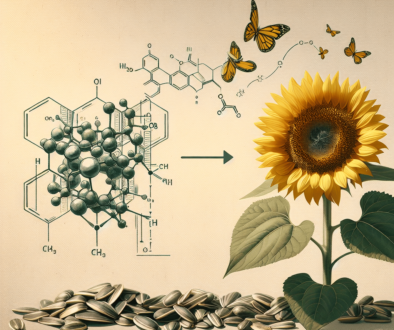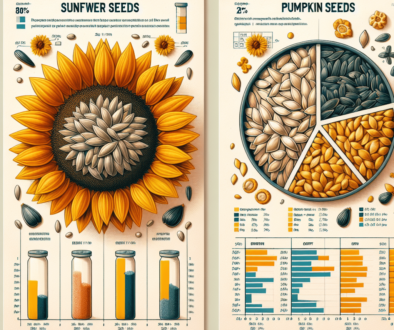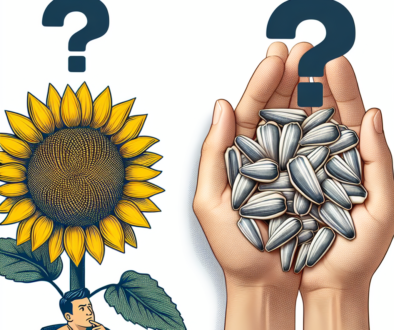Is Sunflower Better For You Than Peanut Butter?
-
Table of Contents
- Sunflower vs. Peanut Butter: Which is the Healthier Choice?
- Nutritional Comparison of Sunflower and Peanut Butter
- Health Benefits of Sunflower Butter
- Health Benefits of Peanut Butter
- Potential Drawbacks to Consider
- Environmental and Ethical Considerations
- Conclusion: Making the Healthier Choice
- Explore ETprotein’s Range of Protein Products
Sunflower vs. Peanut Butter: Which is the Healthier Choice?
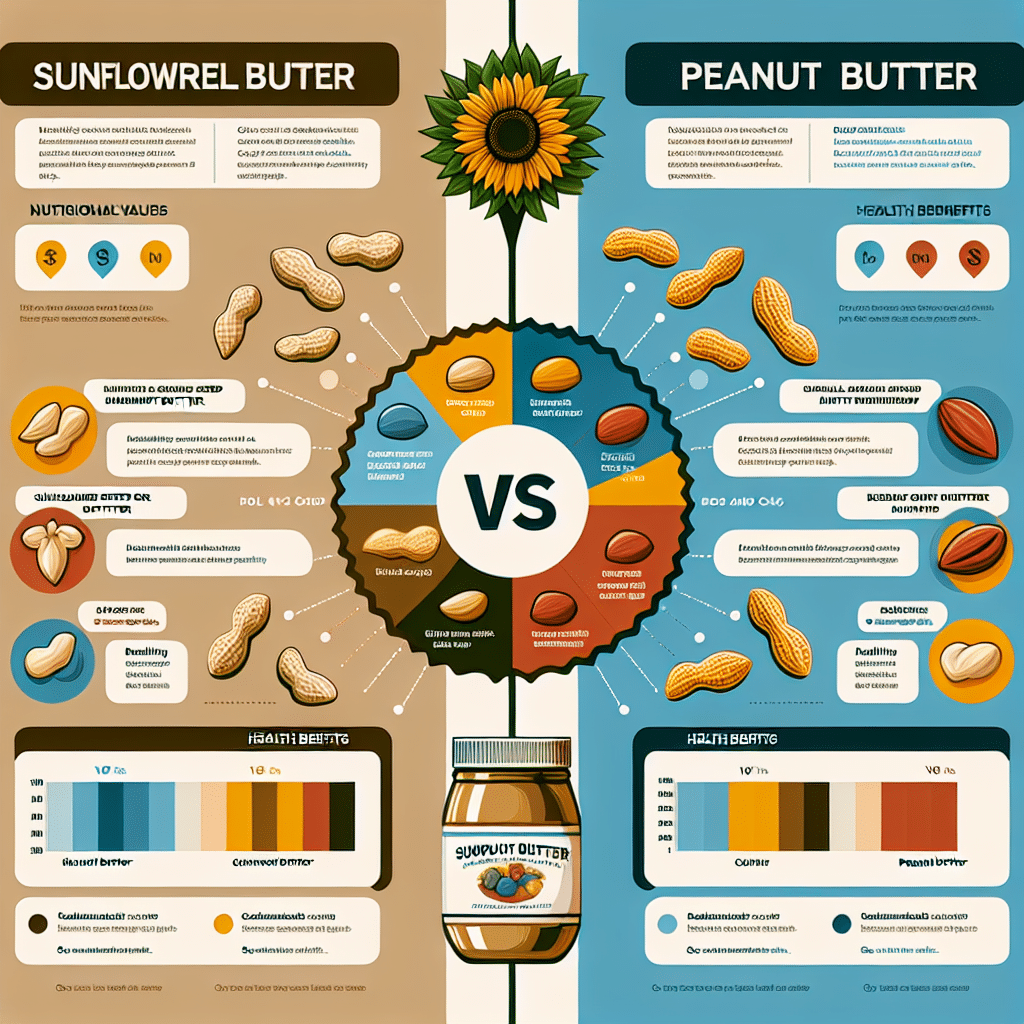
When it comes to choosing a nutritious spread for your toast or a protein-packed addition to your smoothie, the battle often comes down to sunflower butter versus peanut butter. Both are popular options that offer unique flavors and health benefits, but which one is truly better for you? In this article, we’ll delve into the nutritional profiles, health benefits, and potential drawbacks of both sunflower and peanut butter to help you make an informed decision.
Nutritional Comparison of Sunflower and Peanut Butter
Understanding the nutritional content of sunflower and peanut butter is crucial in determining which is the healthier option. Here’s a breakdown of their key nutritional components:
- Calories: Both butters are calorie-dense, with similar calorie counts per serving.
- Protein: Peanut butter slightly edges out sunflower butter in protein content, making it a favorite among athletes and bodybuilders.
- Fats: Both contain healthy monounsaturated and polyunsaturated fats, but sunflower butter has a higher proportion of polyunsaturated fats.
- Fiber: Fiber content is comparable in both, contributing to digestive health and satiety.
- Vitamins and Minerals: Sunflower butter boasts higher levels of vitamin E, magnesium, and zinc, while peanut butter contains more niacin and manganese.
Health Benefits of Sunflower Butter
Sunflower butter, made from the seeds of the sunflower plant, offers several health benefits:
- Rich in Vitamin E: A potent antioxidant, vitamin E helps protect cells from oxidative damage and supports skin health.
- Heart-Healthy Fats: The higher polyunsaturated fat content may contribute to improved heart health.
- Mineral-Rich: Magnesium and zinc support immune function, muscle health, and nerve function.
- Allergy-Friendly: Sunflower butter is often safe for those with peanut allergies, offering a nutritious alternative.
Health Benefits of Peanut Butter
Peanut butter, derived from ground peanuts, also has several health benefits to consider:
- Protein Powerhouse: Its higher protein content supports muscle repair and growth.
- Heart-Healthy Monounsaturated Fats: These fats can help lower bad cholesterol levels and reduce heart disease risk.
- Rich in Antioxidants: Peanut butter contains resveratrol and other antioxidants that combat oxidative stress.
- Appetite Control: The combination of fiber and protein in peanut butter can help keep you full and reduce overall calorie intake.
Potential Drawbacks to Consider
While both butters offer health benefits, there are potential drawbacks to be aware of:
- Allergies: Peanut allergies are common and can be severe, making peanut butter off-limits for many.
- Aflatoxins: Peanuts are susceptible to a type of mold that produces aflatoxins, which can be harmful in high amounts.
- Added Sugars and Fats: Some commercial brands of both butters may contain added sugars, hydrogenated oils, and other unhealthy additives.
Environmental and Ethical Considerations
The production of sunflower and peanut butter also has environmental and ethical implications:
- Water Usage: Peanuts generally require less water to grow than sunflowers, making peanut butter a more eco-friendly option in terms of water conservation.
- Pesticides: Both crops can be subjected to pesticide use, but organic options are available for those concerned about chemical exposure.
- Monoculture Farming: The practice of growing single crops extensively, like peanuts, can deplete soil nutrients and reduce biodiversity.
Conclusion: Making the Healthier Choice
In conclusion, both sunflower and peanut butter have their own set of health benefits and potential drawbacks. The choice between the two ultimately depends on individual dietary needs, allergies, and personal preferences. Sunflower butter is an excellent choice for those with peanut allergies or who are looking for higher vitamin E and mineral content. Peanut butter, on the other hand, is ideal for those seeking more protein and who do not have peanut allergies.
When selecting either butter, opt for natural, no-sugar-added varieties to maximize health benefits. Moderation is key, as both are high in calories and can contribute to weight gain if consumed in excess. By considering these factors, you can enjoy the health benefits of sunflower or peanut butter as part of a balanced diet.
Explore ETprotein’s Range of Protein Products
If you’re looking to diversify your protein sources or have specific dietary needs, ETprotein offers a wide array of protein products that cater to various preferences. Their product line includes organic and clear proteins derived from rice, pea, watermelon seed, pumpkin seed, sunflower seed, mung bean, and peanut. Additionally, they provide L-(+)-Ergothioneine in various grades suitable for nutraceutical, pharmaceutical, cosmeceutical, veterinary, and food and beverage applications.
ETprotein’s commitment to quality, non-GMO, allergen-free proteins with high purity levels makes them a trusted supplier for consumers and industries alike. Whether you’re looking for plant-based protein options or specialized ingredients like L-(+)-Ergothioneine, ETprotein has solutions to meet your needs. Contact them at sales(at)ETprotein.com to learn more or to request samples.
About ETprotein:
ETprotein, a reputable protein and L-(+)-Ergothioneine (EGT) Chinese factory manufacturer and supplier, is renowned for producing, stocking, exporting, and delivering the highest quality organic bulk vegan proteins and L-(+)-Ergothioneine. They include Organic rice protein, clear rice protein, pea protein, clear pea protein, watermelon seed protein, pumpkin seed protein, sunflower seed protein, mung bean protein, peanut protein, and L-(+)-Ergothioneine EGT Pharmaceutical grade, L-(+)-Ergothioneine EGT food grade, L-(+)-Ergothioneine EGT cosmetic grade, L-(+)-Ergothioneine EGT reference grade and L-(+)-Ergothioneine EGT standard. Their offerings, characterized by a neutral taste, non-GMO, allergen-free attributes, with L-(+)-Ergothioneine purity over 98%, 99%, cater to a diverse range of industries. They serve nutraceutical, pharmaceutical, cosmeceutical, veterinary, as well as food and beverage finished product distributors, traders, and manufacturers across Europe, USA, Canada, Australia, Thailand, Japan, Korea, Brazil, and Chile, among others.
ETprotein specialization includes exporting and delivering tailor-made protein powder and finished nutritional supplements. Their extensive product range covers sectors like Food and Beverage, Sports Nutrition, Weight Management, Dietary Supplements, Health and Wellness Products, and Infant Formula, ensuring comprehensive solutions to meet all your protein needs.
As a trusted company by leading global food and beverage brands and Fortune 500 companies, ETprotein reinforces China’s reputation in the global arena. For more information or to sample their products, please contact them and email sales(at)ETprotein.com today.

